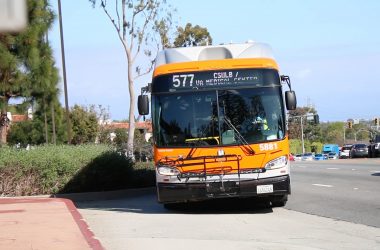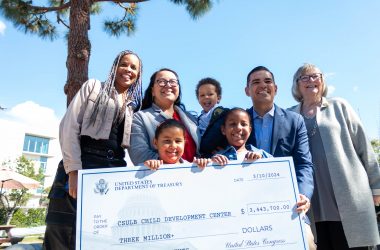Health problems within the African-American community and possible solutions were discussed at the Health Awareness Forum on Thursday at the University Student Union.
The event was hosted by California State Long Beach’s National Association for the Advancement of Colored People together with the African Student Union.
“Our goal is to make all CSULB students, particularly minority students, aware of the importance of being in good health and to have a long and prosperous life,” said Trevon Williams, president of CSULB-NAACP and Phi Beta Sigma. “I wanted our efforts to be grassroots, to go into the communities and be on the media. When you know better, you do better.”
Kevin C. Heslin, a health disparities researcher and assistant professor at Charles Drew University, presented a study, Sexual Orientation and Testing for Prostate and Colorectal Cancers among Men in California.
According to the study, prostate and colorectal cancers are the second and third most common cancer deaths among men in the United States. Lung cancer is the most common cancer death.
In the 2008 study, Heslin found that lung cancer accounted for 70 deaths per 100,000 men. Prostate cancer accounted for 27 deaths per 100,000 men and colorectal cancer was 18 deaths per 100,000 men.
According to a California Health Interview Survey conducted in 2001, 2003 and 2005 by UCLA Center for Health Policy Research, 22 percent of gay and bisexual African-American men are up-to-date on their prostate-specific antigen (PSA) test and 34 percent of heterosexual African-American men have had a PSA test. The amount PSA tests used by gay and bisexual African-Americans was 15 to 28 percent lower than that of gay and bisexual whites, according to the survey.
Bill J. Releford, founder of the Black Barbershop Health Outreach Program, spoke about his program at the health awareness forum.
According to Releford, African-American men suffer from high rates of diabetes and hypertension. African-American men also have the lowest life expectancy out of all ethnic groups.
Releford said his goal is to empower African-American men to understand diabetes and hypertension better. Releford sends out volunteer’s to barbershops around the country, screening customers for diabetes and measuring their blood pressures. Those who need further care will be referred to a health care facility. So far, the program has screened 8,000 men.
Cynthia Davis, an assistant professor and program director in the Department of Family Medicine at Charles R. Drew University of Medicine and Science, spoke about the concerns related to HIV/AIDS at the forum.
In 2007, the Centers for Disease Control and Prevention estimates that there were 571,378 people living with HIV/AIDS in the United States.
However, because of unreported cases the total number is thought to be much higher. During 2007, 50 percent of those infected by HIV were African-American.
Davis said that we have got to take the rise of HIV infections more seriously.
“We want to know what Obama is going to do about the fact that we have a crisis in Washington DC with four percent of the population being infected right in the nation’s capital, and the rise of infections within the black community,” Davis said. We need some response from the Obama Administration. We can’t wait.”
The presentations held by the speakers left a lasting impression on the students attending the health awareness forum.
“I need to start taking advantage of the things that I have available to me,” said ViAnna Culp-Freeman, a freshman chemistry major. “If anything, I know that there are a lot of people out there who have diabetes and aids, but I never looked at it as if that could be me. Now I realize that maybe I should change the way I eat. But it’s hard to make that transition.”
For more information on becoming a volunteer for the Black Barbershop outreach program, visit blackbarbershop.org.



